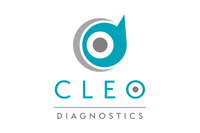BioSig Technologies Meeting a Need in the Electrophysiology Market
BioSig founder Ken Londoner discusses the unmet need in the electrophysiology market that his company is looking to fill.
With its PURE EP system— a medical device to improve the clarity of signals in cardiac electrophysiology labs — BioSig Technologies (OTCQB:BSGM) is looking to compete in an already established market. That said, investors might wonder how it is the company plans to stand out in the crowd, and how they determined that there was a need to fill in the electrophysiology market.
To help investors better understand the company’s position, Investing News Network spoke with BioSig’s founder, Ken Londoner, who provided some insight on filling the unmet need in the electrophysiology market and why the medical device market, more specifically the electrophysiology market, was the company’s path of choice.
Londoner explained that for an investor, one of the most important things to look for when assessing a company is understanding “what is the clinical need.” From there, investors must be able to answer who the patient is, if the company has a solution and what the success rate of the solution is and can it be improved.
Looking at the atrial fibrillation market, Londoner highlighted that one in two patients fail the cardiac ablation surgery and require a repeat procedure. While that statistic seems bleak, Londoner explained that if a patient’s condition is caught in an early enough stage, that statistic improve drastically and patients are less prone to relapses.
“Our technology is not only trying to cut the time of the procedures, but also improve on the instances of relapse,” Londoner said.
BioSig is on its way to proving that their technology will be successful in filling an unmet need in the market. “We are starting to release this preclinical data,” Londoner told INN, “That preclinical data will help people understand that we have something that offers value in an industry that has a demand for it it.”
While the company is not able to make definitive statements, as it yet has no human data to fall back on, the preclinical data is promising. As the company’s CEO Greg Cash told INN in an earlier interview, the company’s preclinical data had shown “a much higher signal quality” enabling the user to view more than currently possible with other devices.
Why medical devices?
“One of the things I’ve always liked about the medical device market is that it grows no matter what happens in the world.” Londoner told INN.
Londoner went on to explain that the cost of healthcare goes up dramatically each year. With that in mind, “the only to reduce cost is through the implementation of strong technology.” That said, medical devices have always played a role in cost containment.
“You have growth no matter what and you have the ability to reduce costs. Those two variables always attract investor attention because there is always going to be demand for it.” And as we know, if there is demand, there is a benefit for investors.
Medical technology, as Londoner told INN, provides companies with a sustainable competitive advantage. “You have patents, clinical data and market acceptance. This can provide a company with a strong position for a long period of time, meaning you can make a strong amount of profit.”
In regards to BioSig, Londoner explained that the company is public because it believes that can offer the public market a growth company in a growth sector of the economy that’s in high demand.
“As people get to know us better, and as we continue to execute well, as we have been, we will create shareholder value.”
Securities Disclosure: I, Vivien Diniz, hold no direct investment interest in any of the companies mentioned in this article.
Editorial Disclosure: BioSig Technologies was not a client of the Investing News Network at the time this interview was conducted. This article is not paid-for content.
The Investing News Network does not guarantee the accuracy or thoroughness of the information reported in the interviews it conducts. The opinions expressed in these interviews do not reflect the opinions of the Investing News Network and do not constitute investment advice. All readers are encouraged to perform their own due diligence.


